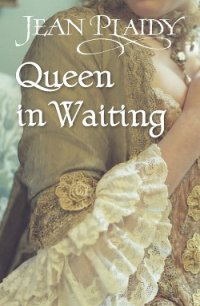The Red Rose of Anjou - Plaidy Jean (книги онлайн полные версии бесплатно .TXT) 📗
The troops of York and Warwick were of a different caliber. They were fighting because they believed they needed a strong King and Henry was not suited to the role. They had merely wanted him to reign with strong men to guide him and after his death for York to take the throne. York had convinced many of them that he had the greater claim in any case.
The people of London would never open their gates to Margaret’s army. One did not have to think very deeply to imagine the pillage that would take place if the richest city in the kingdom was thrown open to the marauders. London had its own troops. It would never allow Margaret’s rabble to enter.
There was discussion and argument. Margaret began to see the point. There would be opposition and London had decided the fate of several kings.
Perhaps she was not strong enough. Perhaps now that she had shown she could win battles she would lure different kinds of men to her banner. Perhaps she would not have to rely on these mercenaries collected for her by her very good friends.
When Jasper added his voice to the others she was inclined to sway towards their view. In the meantime she remained at St. Albans.
###
Warwick rode at the head of his defeated army. The debacle at St. Albans had been a humiliating experience. Looking back he could see where it had gone wrong. There had been too much preparation and it had all been of no avail—frustrated by the simplest of strategy. The battle had not taken place facing the direction he had intended it should. It all depended on that— and the defection of Lovelace. Who would have believed it of the man? Whom could one trust? Men changed sides as easily as they changed their boots.
And now? Well, he had been in worse trouble. All was not lost. He must join up with Edward. The young man would be in good spirits flushed with the success of Mortimer’s Cross. Together they would form a considerable army; and his men would merge with the victorious and forget their defeat.
He sent scouts ahead to make contact with Edward and as he marched he made his plans.
He had lost his figurehead. He no longer had the King. He could not say that he was the King’s servant when the King now marched with the enemy. Of what use was the King when he was not a figurehead? Poor Henry, he was too supine to be anything else.
‘Forsooth and forsooth,’ said Warwick, imitating the King’s own oath, ‘since I do not hold him, I must needs do without him.’
He was in good spirits when in the town of Burford he made contact with Edward and his army.
They embraced. Then Edward looked about him.
‘Where is the King?’ he asked.
‘Right before me,’ answered Warwick.
Edward looked bewildered.
‘You are now the King,’ said Warwick.
Edward stared at him; and then his face was illumined by z, smile. He began to laugh.
‘There is little time to be lost. We will rest here and I will tell you what happens next.’
So they rested, for that night only. There must be no delay.
‘It is imperative that we reach London before Margaret,’ said Warwick. ‘The people of London will not let her in. They do not trust her armies. They will welcome us to protect the city and that is what we will promise to do and then my friend...and then...we will present them with their new king Edward—the fourth of that name. I know it will succeed.’
‘I will make it succeed,’ said Edward.
And Warwick glowed with satisfaction. This would be the cleverest move of his life. Out of defeat he would snatch victory.
###
London was in turmoil. News of the Yorkist defeat had reached it and the citizens feared that now Margaret’s army would descend upon them. Councils were hastily called to discuss the best move.
Proud Cis was terrified for her two sons George and Richard. She was full of foreboding. The death of her husband and son had filled her with melancholy. She had been so certain that she was almost Queen of England. She worried constantly about Edward’s safety. If she lost him all her hopes would be centred in George and Richard.
She said a fond farewell to them and sent them off to the Low Countries and settled down in Southwark to await the worst. Meanwhile the magistrates had decided that they would be unable to keep out the Queen’s army and must try to make terms, perhaps placate them; in any case keep them from the looting they had previously indulged in. Houses and shops were hastily boarded up and people began to arm themselves.
There were messages from Margaret; she needed food and money for her army and demanded that London supply them. The mayor and the aldermen set about collecting this. When news came that many of the rough Northerners had tired of waiting at St. Albans and had deserted, wandering back to the North and looking for loot as they went, the Londoners were delighted.
They decided to do a little looting themselves and took the food and money which the Mayor and the aldermen had collected for the Queen.
It was a great day when scouts from Warwick rode into the city. He, with the Duke of York, was on his way and they asked nothing of the Londoners but to be allowed to protect the city from the rough mercenaries many of whom comprised the Lancastrian army. If the city would open its gates, the Earl of
Warwick, with the Duke of York, would march in and drive out all those who came to destroy it.
There was rejoicing through the city and when the united armies of Warwick and York appeared the gates were thrown open and the people came out to greet them. An orderly army rode in. Though half the size of Margaret’s it had won the most important battle of all without fighting.
When, still at St. Albans, Margaret heard the news of York’s and Warwick’s arrival in London, she realized she had lost the great opportunity of a lifetime. She should have dismissed her rabble army and marched into the capital with the King and her faithful knights. There were enough of them and they were gallant men who believed in the cause. But Warwick had forestalled her and London looked upon him and the handsome Edward as their saviours.
The time was ripe. Warwick saw that and he believed that in all affairs time was the important factor. Margaret had been victorious at St. Albans but she had succeeded with a band of ruffians, foreigners most of them, and she had made the fatal mistake of not coming with the King to London. Now the loss of the battle of St. Albans did not matter. Margaret had played into their hands and Warwick was not the man to lose such an opportunity.
He summoned the Yorkist peers to Barnard Castle, one of the homes of the House of York, and there he set out before them what they must do. It was fortunate that among those present was George Neville, Warwick’s younger brother and loyal adherent. Archbishop of York and Chancellor of England.
‘There is no time to lose,’ said Warwick. ‘London is ready to receive Edward and what London does today the rest of the country will do tomorrow. I’ll swear that if Edward were proclaimed King at Paul’s Cross the people would cheer themselves hoarse and be ready to uphold him,’
‘I believe it would be so,’ said George Neville.
Edward’s eyes were shining. This was success now. He had believed he would eventually attain the crown but he had not conceived that it could be so suddenly, particularly after Warwick’s defeat at St. Albans.
But Warwick was a wizard. He was one of those sorcerers who could turn defeat into victory.
The first step, said Warwick, would be for George to preach a sermon in some popular place...say St. George’s Fields. There he would tell the people that Edward was their true King by descent. He was closer to Edward the Third than Henry was. He would remind the people that the son of John of Gaunt had usurped the throne from the son of the Black Prince but there was a line closer than that of John of Gaunt.




